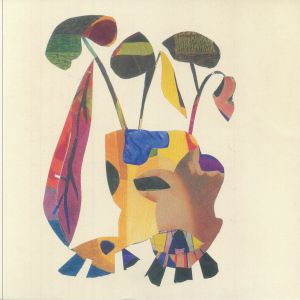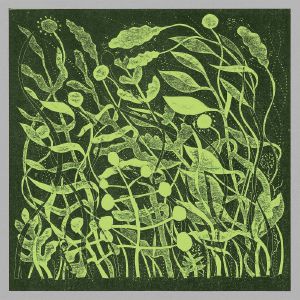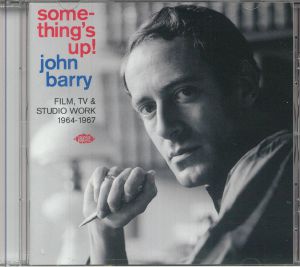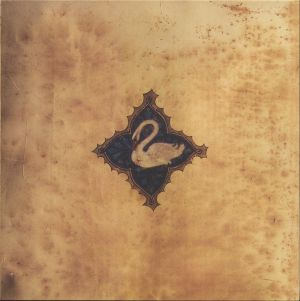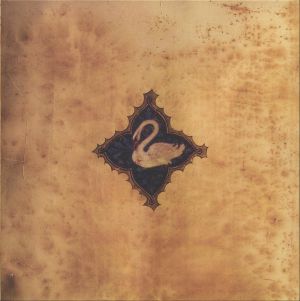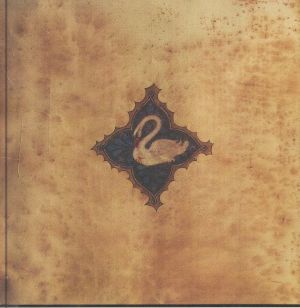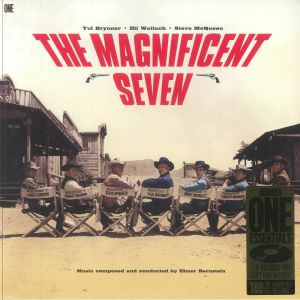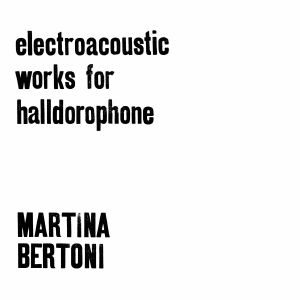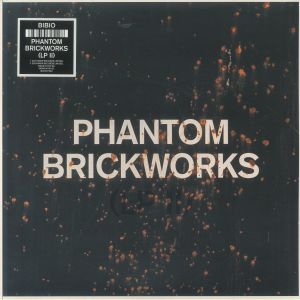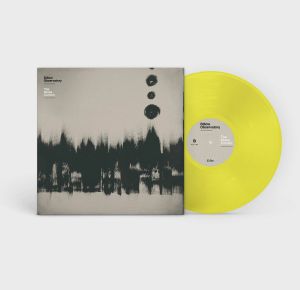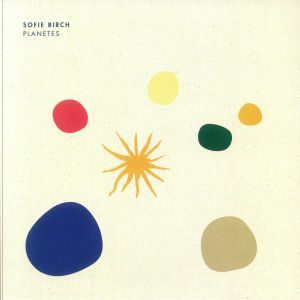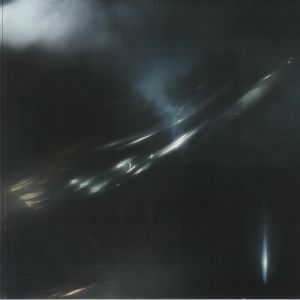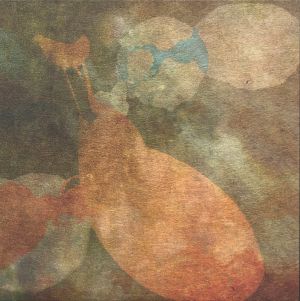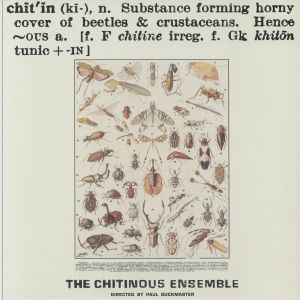Filter
Genre
Stock
Label
Featured
Release Title
Price
Back catalogue: Classical
Juno's full catalogue of Classical
Singles
Dessus Oben Alto Up (180 gram vinyl 12" + MP3 download code)
Cat: MARIONETTE 25LP. Rel: 19 Nov 24
Review: This EP is the first collaborative work by Andrea Belfi and Jules Reidy. Berlin-based and hailing from Italy and Australia respectively, the duo blends compositional precision with improvisational freedom. During a residency at Berlin's Callie's-a 19th-century factory turned arts space-they and engineer Marco Anulli crafted four expansive tracks in which Belfi's masterful drumming interlaces with Reidy's shimmering guitars and electronic textures. The opener layers just-intoned guitar figures over delicate brushwork and climaxes with a synthetic surge and tracks like 'Oben' and 'Alto' explore shifting grooves, propulsive rhythms and dynamic soundscapes.
… Read moreIntérprete: Kaoru Inoue
in stock $24.62
Álbumes
Intérprete: Juno Recommends Ambient/Drone
in stock $22.12
Review: Something's Up! is a masterful compilation that features the eclectic brilliance of John Barry's film scores. Curated by Saint Etienne's Bob Stanley, this collection highlights Barry's transition from a British arranger to a pop icon, renowned for defining the sound of the Cold War spy movie era. Focusing on music from 1964 to 1967, this album features Barry's iconic work on James Bond classics like Goldfinger, Thunderball, and You Only Live Twice, cementing his influence on the spy genre. Beyond Bond, Barry's contributions to films such as The Ipcress File and The Quiller Memorandum exemplify his ability to blend tension with sophistication. The collection also includes less-celebrated but notable scores like those for King Rat, The Chase and Seance on a Wet Afternoon, reflecting Barry's diverse range and ability to craft memorable themes beyond the mainstream. Barry's music, characterised by its lush orchestration and emotive power, extended its reach from the silver screen to the vinyl, resonating with listeners even if they hadn't seen the films - and his exceptional talent and enduring legacy in film music is on full display here,
… Read moreIntérprete: Juno Recommends Leftfield, Juno Recommends Experimental
in stock $15.22
September 23rd (limited gatefold dark blue vinyl LP (indie exclusive))
Cat: TRR 435LPC1. Rel: 10 Oct 24
Review: Originally recorded in September 1982, September 23rd would likely not recognise the DUMBO neighbourhood of Brooklyn in which it was conceived. Post-industrialisation, the area became known as a hotbed for artists due to the inexpensive loft spaces up for grabs, but today has been gentrified thanks to its position - Down Under Manhattan Bridge Overpass. One thing that hasn't changed in that time is just how spectacular William Basinski's pieces are. Comprising two parts, original piano sections played by close friend and world famous drag artist John Epperson (AKA Lypsinka) were recorded onto a handheld cassette machine, before being fed through a Frippertronics loop and feedback loop tape delay system, with incredible results. Rich, strange sonic textures, beautiful but fleeting moments of melody and a depth that sounds like you can dive into it.
… Read moreIntérprete: Juno Recommends Ambient/Drone
in stock $36.80
September 23rd (gatefold LP)
Cat: TRR 435LP. Rel: 10 Oct 24
Review: September 23rd is the debut release of William Basinski's new Arcadia Archive series and it features a previously unreleased gem recorded in September 1982 in his first loft in Brooklyn's pre-gentrified DUMBO. This early work, derived from a high school piano composition, evolved significantly after Basinski recorded it using a portable cassette deck on a piano owned by his neighbour, John Epperson at 351 Jay Street. Initially unimpressive, the piece transformed through Basinski's use of the John Giorno/William Burroughs cut-up technique and Frippertronics loop system to yield remarkable results. This discovery adds a captivating layer to Basinski's nearly five-decade career.
… Read moreIntérprete: Juno Recommends Ambient/Drone
in stock $22.96
Review: September 23rd is the first release in William Basinski's new Arcadia Archive series. Recorded in September 1982 in his first loft in the DUMBO neighborhood in Brooklyn, New York, September 23rd is a recently unearthed early entry in what has become a hugely inspirational and influential catalogue. Built from a piano piece that Basinski composed in high school in the mid-1970s, September 23rd quickly evolved into a vastly different work, upon its revisitation. Using the John Giorno and William Burroughs cut-up technique, Basinski fabricated an elaborate Frippertronics and feedback loop tape delay system, resulting in the quiet but dramatic set of sounds and resounds you hear here.
… Read more in stock $16.32
The Magnificent Seven (Soundtrack) (180 gram audiophile vinyl LP)
Cat: 291018. Rel: 05 Feb 25
Intérprete: Juno Recommends Leftfield, Juno Recommends Experimental
in stock $17.70
Electroacoustic Works For Halldorophone (180 gram audiophile clear vinyl 2xLP + MP3 download code limited to 300 copies)
Cat: KR 118. Rel: 20 Feb 25
in stock $24.34
Review: Originally released in 2017, Phantom Brickworks by Bibio (Stephen James Wilkinson) was an ambient exploration of abandoned sites around Britain, blending improvisation and composition to capture the lingering human presence in decaying locations. Now, the sequel, Phantom Brickworks (LP II), arrives as a ten-track double LP, complete with an MP3 download code. Mastered by Guy Davie and cut by Hendrik Pauler, this new record shifts focus to more intriguing landscapes, both real and legendary. From vast scars on the terrain to memories buried in folklore, Bibio's soundscapes evoke spaces lost to time but still resonant in history.
… Read moreIntérprete: Juno Recommends Ambient/Drone, Charles Webster
in stock $33.18
The Glass Curtain (limited transparent yellow vinyl LP)
Cat: FLT 110LPC1. Rel: 24 Apr 25
Review: Billow Observatory returns to the fully ambient realms of their 2012 debut with a deeply introspective, percussion-free release that drifts through spectral soundscapes. Created by Jason Kolb and Jonas Munk, the duo's transatlantic collaboration has matured across four full-length albums marked by precision and emotional depth. Here, abandoning traditional structure, the album instead looks to harness the power of chance and randomness with shimmering guitar textures that crackle and dissolve like dust in water. It evokes a world slightly out of sync that is brooding, haunting and beautifully immersive while underlining their place as masters of refined, atmospheric ambient music.
… Read moreIntérprete: Juno Recommends Leftfield, Juno Recommends Ambient/Drone
in stock $24.07
Intérprete: Alexis Le-Tan
in stock $38.46
Ghost (hand-numbered CD + download code limited to 200 copies)
Cat: PITP 55CD. Rel: 15 Nov 24
Review: New York-based Black Swan returns with an impressive ninth album on ambient gold mine Past Inside The Present. The is the CD version (we also have it on cassette) and it's a record that blends analogue recording techniques to blur the lines between memory and reality. Influenced by musique concrete, ambient and dark drone traditions, the album is a continuous suite of 20 tracks that reflect a spirit navigating the physical world. Some are short vignettes while others evolve over longer play times with layered intensity. Standouts include 'Like Dust, I Linger' with its tender warble and 'Ad Infinitum' which is lit up with shimmering synths. It's another triumphant work from Black Swan.
… Read moreIntérprete: Joachim Spieth, Juno Recommends Ambient/Drone
in stock $12.72
Ghost (cassette limited to 50 copies)
Cat: PITP 55CASSETTE. Rel: 08 Nov 24
Review: Using a variety of tape stocks, Black Swan creates a haunting atmosphere that evokes the sensation of uncovering long-lost, sacred recordings hidden in time on his ninth album, Ghost. The New York-based artist reveals that he was inspired by musique concrete and ambient while making the record, which is made up of 20 pieces that all form a continuous suite. Each track varies in length and complexity from short and sweet sketches to more elongated studies and that are made from intense layering and harmonic surges using an array of tape stocks. The result is a haunting, unearthly atmosphere that sounds perfect in this cassette format.
… Read moreIntérprete: Juno Recommends Ambient/Drone
in stock $12.72
Review: London-based producer Box5ive is best known for bass-y reverberations, putting together potent UK-sounding club stuff for labels like Panel Audio and Well Street Records. A new direction found, co:clear now presents a stunning and beautiful collection of gentile ambient and drone material which is as transportive as it is trippy. A sunrise, a breathwork session, an odyssey through the mind's eye, a real work of art. At its most lush, Grey Space gives us the spatial twinkles of 'Sour Kiss', or the whispered exhales of 'Rough Sleeper', 'In Grey Space' and its sense of vast emptiness, and the crystalline harmonies on 'First Name'. At its loudest, we have the occasional beats and echoed notes of 'Omni74' and the blissful, d&b-chill of 'Blind' and 'Sell A Door'. The point being, this is never loud or overbearing, but always seductive and immersive.
… Read moreIntérprete: Juno Recommends Ambient/Drone
in stock $21.86
Review: The cream of contemporary ambient dub, Civilistjavel! (Tomas Boden), is back on the scene with Brodfoda. Through twelve roman numerical movements titled I through XII, the initially anonymous artist makes a subtle affective turn here. Earlier commanding the interest of the now sadly felled Low Company trunk - one of the best seedlings of which has to be the FELT imprint - Brodfoda sacrifices Boden's earlier emphasis on dubiously emotive but still progressive dub pieces in favour of a deeper mood-disclosure; a more expansive, but still demure, dozen tracks of grained-out audio-sepias and cathartic vocal swells, which creep up on the listener like latent realisations, as though they were always there somewhere in the mix-murk. The vocal contributions, this time from Mayssa Jallad and Laila Sakini, as ever lie among the most welcome contributions to Civilist's output, with 'IX' portraying an especially towering sense of depth, awestruck palpation.
… Read more in stock $28.76
Chitinous (limited LP)
Cat: COSMJA 001. Rel: 16 May 24
Review: This is a real gem of the English jazz revolution - Chitinous by cellist Paul Buckmaster stands tall as an obscure masterpiece. Renowned for his collaborations with legends like Miles Davis and David Bowie, Buckmaster leads a colossal orchestra of 51 players, featuring top English musicians including trumpeter Ian Carr and drummer John Marshall. Recorded in 1970, the album showcases Buckmaster's mastery of the cello and keyboards and is organised into suites where the music seamlessly blends classical, contemporary and jazz influences, offering broad yet evocative compositions. This reissue reminds us of Buckmaster's innovation as well as the era's renowned musical experimentation.
… Read moreIntérprete: Juno Recommends Jazz
in stock $21.02
Juhrop (A Klingon Opera) (hand-numbered 2xLP box set + booklet + insert in die-cut box limited to 250 copies)
Cat: YOUDO 08. Rel: 07 Apr 25
Intérprete: Juno Recommends Experimental
in stock $48.68

 USD
USD





